Ona and PATH in Zambia for OpenSRP Immunization Project
The Ona team started the year off right with a productive visit to Livingstone, Zambia, the site of the most recent OpenSRP implementation.
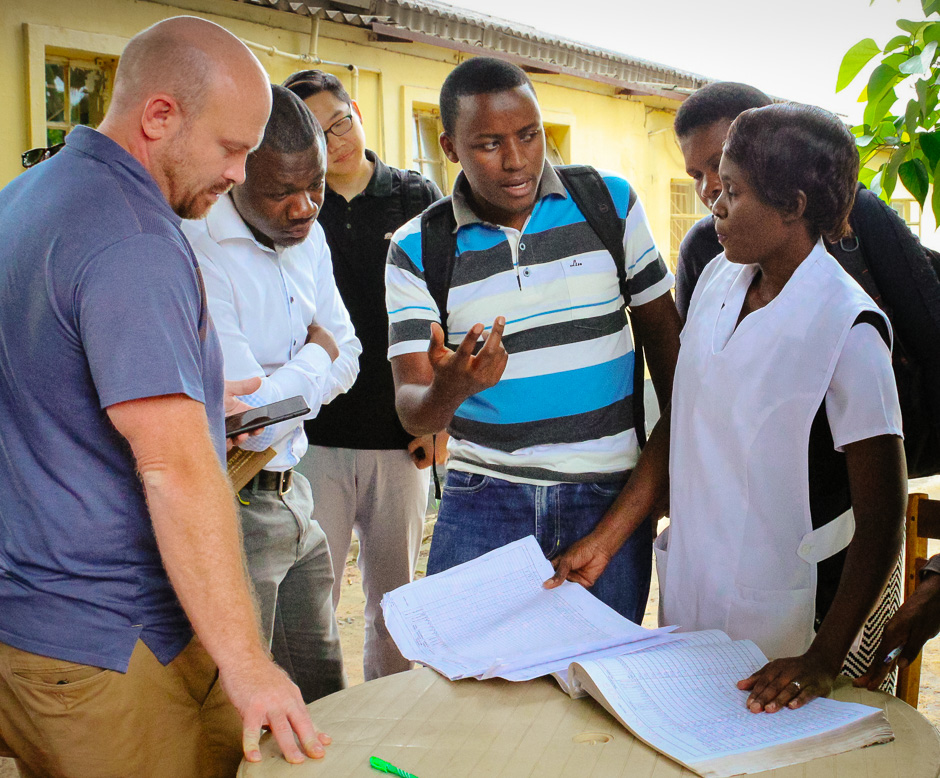
James Maina (center), a technical project manager at Ona, asks a clinic nurse about her workflow. Photo: PATH/Mali Kambandu
In Zambia, OpenSRP will be used as an immunization platform to support PATH’s BID Initiative, a multi-year initiative spanning Zambia and Tanzania with the involvement of several other African countries through the BID Learning Network. BID Initiative aims to support health workers in providing timely childhood vaccines, and emphasizes better access to, and use of, data by health workers.
Ona is working with partners at PATH, the Ministry of Health and nurses in Zambia to adapt OpenSRP to the Zambian health system and ensure the immunization data becomes more accessible and useful to health workers, for instance, helping with decision making around defaulter tracing and stock management. In its first phase, nurses in 283 health centres will use the adapted OpenSRP in their immunisation services.
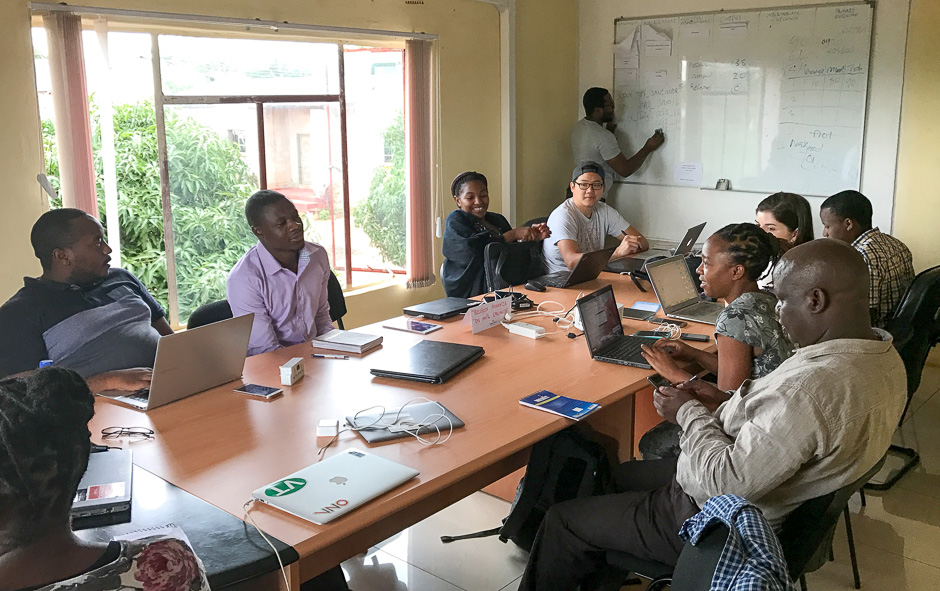
Ona at the PATH office discussing requirements.
Once OpenSRP is rolled out to health facilities, nurses will start registering children at birth and record childhood vaccinations up to age 18 months. The OpenSRP app will also allow nurses to track childrens’ growth up to 5 years and automate many of the Government of Zambia’s reporting requirements, including district-level reporting in DHIS2.
While in Zambia, the Ona team met with members of the MoH, the PATH implementation team and facility nurses, who are the end users. Our activities involved co-designing the platform, testing designs, defining functional requirements, and mapping out a project schedule. As a group, we identified pain points during nurse workflows — points where we think OpenSRP will make a difference.
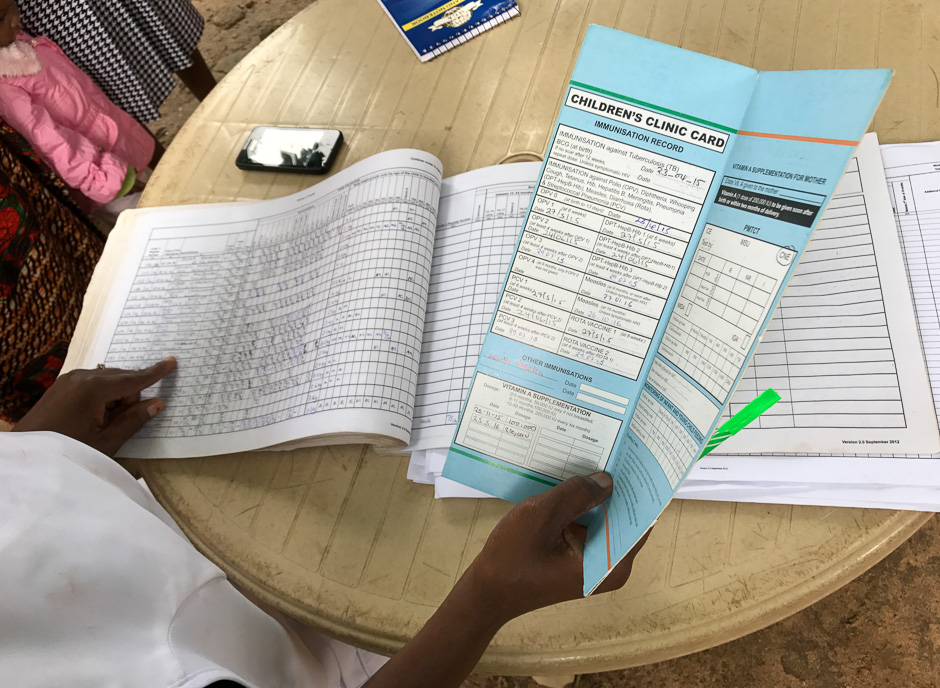 The current paper-based system involves finding and matching records in separate books.
The current paper-based system involves finding and matching records in separate books.
At a health facility visit, we observed nurses during a weekly immunization clinic and identified bottlenecks to maintaining paper immunization records. For example, using a paper registers required a lengthy process to find client records and writing the same information several times.
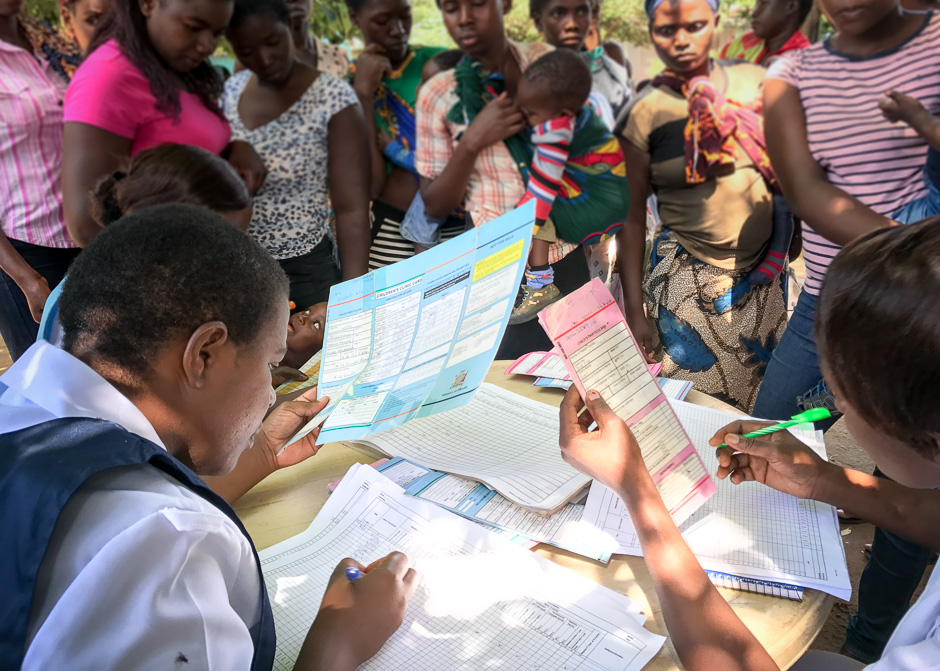
The time involved in finding records and re-writing the same information results in long wait times during immunization camps, making going to get vaccinated less appealing.
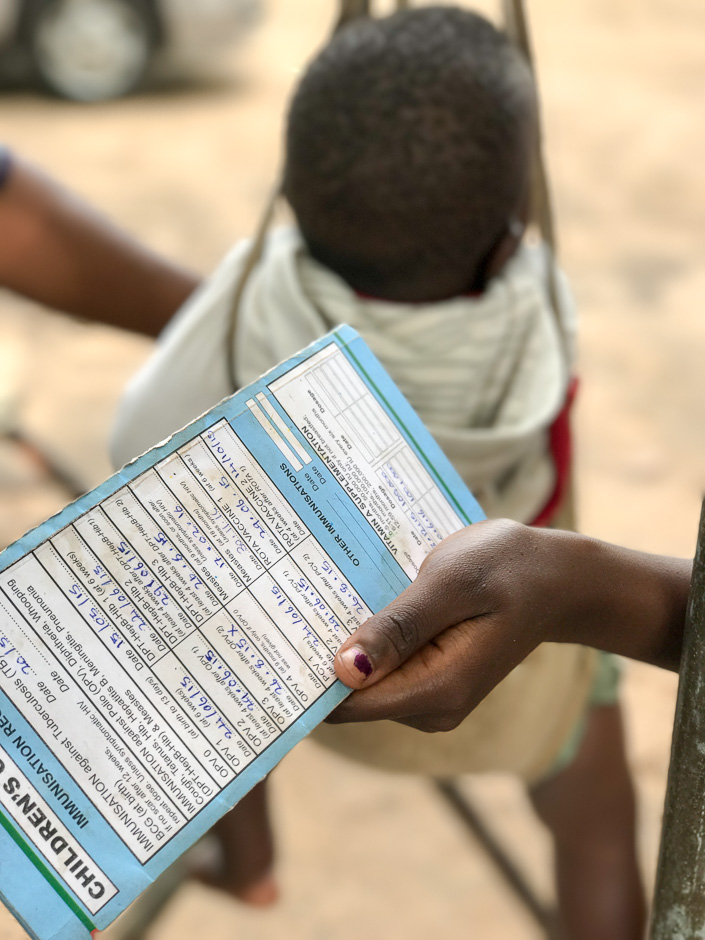
During camps a key interaction is the initial weigh-in, where issues are noted and upcoming care is assigned.
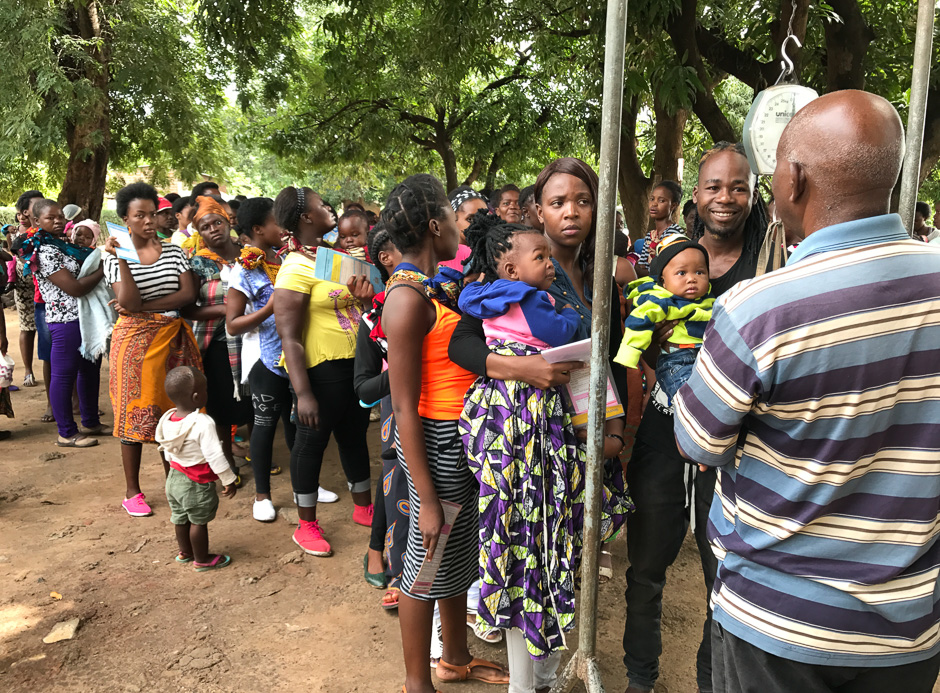
Up to 150 children may show up at an end-of-month immunization camp.
We are really excited to be working with an adept and responsive implementation team and childhood health system. Look out for updates in the upcoming months.
For more information, check out bidinitiative.org and the OpenSRP website. If you think your project could benefit from OpenSRP, please email biz@ona.io for more information.

